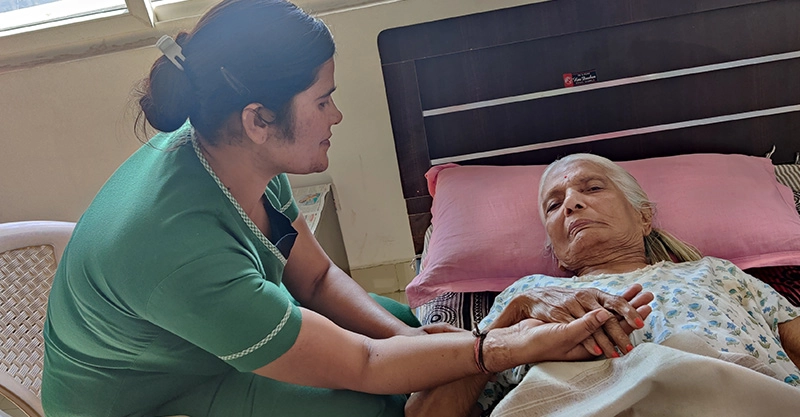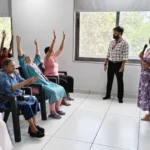A good night’s sleep is integral to overall well-being, especially for older adults whose health can be significantly impacted by the quality of their sleep. As we age, sleep patterns tend to change, and disturbances in sleep can have profound effects on neurological health. This article delves into the relationship between sleep and neurological health in older adults, offering insights into the basics of sleep, the impact on the elderly, and practical tips to enhance sleep quality. Additionally, we will explore how PapayaCare, with its dedicated approach, is addressing sleepiness in older adults, promoting a holistic and tailored care solution.
Basics of Sleep and Older Adults
Understanding the fundamentals of sleep is crucial for grasping its significance in the context of older adults. Sleep is a complex physiological process involving distinct stages, including deep sleep and rapid eye movement (REM) sleep. As individuals age, changes in sleep architecture occur, often resulting in lighter and more fragmented sleep. This alteration can lead to difficulties falling asleep and staying asleep, impacting the overall duration and quality of sleep in older adults.
The Effects of Sleep on the Neurological Health of the Elderly
Sleep and neurological health share an intricate relationship, particularly in older adults. Adequate and quality sleep is essential for cognitive functions such as memory consolidation, information processing, and problem-solving. Conversely, sleep disturbances are linked to an increased risk of neurodegenerative conditions, including Alzheimer’s disease and dementia. Chronic sleep problems can exacerbate cognitive decline, highlighting the critical role of sleep in maintaining optimal neurological health among the elderly.
5 Tips for Improving Sleep in Older Adults
Enhancing sleep quality in older adults involves adopting holistic strategies that encompass both lifestyle adjustments and environmental considerations. Establishing a consistent sleep schedule, creating a comfortable sleep environment, encouraging physical activity, limiting stimulants and screen time, and seeking professional guidance are key components of an effective approach to address sleep-related challenges in the elderly.
Establishing a Consistent Sleep Schedule
Maintaining a regular sleep-wake cycle helps regulate the body’s internal clock, promoting better sleep quality. Encouraging older adults to go to bed and wake up at the same time each day, even on weekends, can reinforce a stable sleep routine.
Creating a Comfortable Sleep Environment
The sleep environment plays a pivotal role in ensuring restful sleep. Older adults should aim for a cool, dark, and quiet bedroom. Investing in a comfortable mattress and pillows that provide proper support can significantly enhance overall sleep comfort.
Encouraging Physical Activity
Regular physical activity contributes to better sleep quality. Engaging in moderate exercises, such as walking or gentle yoga, can promote relaxation and improve sleep. However, it’s essential to avoid vigorous activities close to bedtime to prevent interference with sleep initiation.
Limiting Stimulants and Screen Time
Caffeine and electronic devices can interfere with sleep patterns. Advising older adults to limit caffeine intake, especially in the afternoon and evening, and reduce screen time before bedtime can contribute to better sleep hygiene.
Seeking Professional Guidance
Persistent sleep problems may require professional intervention. Encouraging older adults to consult with healthcare providers, including sleep specialists, can help identify and address underlying issues contributing to sleep disturbances.
How PapayaCare is Taking Care of Sleepiness in Older Adults?
PapayaCare recognizes the unique sleep-related needs of older adults and has implemented specialized approaches to address sleepiness. Through personalized care plans, PapayaCare ensures that the sleep patterns and preferences of each individual are considered. Trained caregivers assist with bedtime routines, create conducive sleep environments, and provide companionship during the night, fostering a sense of security and comfort. By integrating these measures, PapayaCare not only focuses on addressing sleepiness but also contributes to the overall well-being and neurological health of older adults under its care.
Conclusion
In conclusion, the relationship between sleep and neurological health in older adults is a crucial aspect of overall well-being. Understanding the basics of sleep, recognizing its impact on neurological functions, and implementing practical tips for improvement are essential steps in promoting healthy sleep patterns among the elderly. Organizations like PapayaCare play a pivotal role in addressing sleep-related challenges, offering tailored solutions that go beyond conventional approaches. Prioritizing sleep in older adults is not just about improving rest; it’s about safeguarding neurological health and ensuring a higher quality of life as individuals age.
















